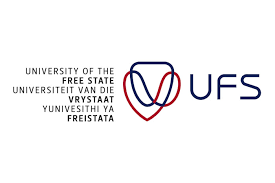University of the Free State: Team UFS completes very first Sasol Solar Challenge
Excitement. Nervousness. A thousand thoughts going through our minds, but primarily “Are we really ready for the challenges that lie ahead?” and “What did we get ourselves into?” In the moments leading up to this year’s Sasol Solar Challenge, these were the thoughts and emotions of Team UFS, who entered their solar car, Lengau.
“But I had confidence in the team,” says Dr Hendrik van Heerden from the UFS Department of Physics at the University of the Free State (UFS) and project manager of Team UFS who entered the challenge for the very first time this year.
Testing perseverance
Entering the Sasol Solar Challenge – a biennial competition that has been running since 2008 – Team UFS competed against seven other teams (representing local and international universities, high schools, and engineering teams), sharing the public roads of South Africa with trucks and regular traffic, sometimes experiencing steep mountain climbs, testing not only their technological input and innovation, but also their perseverance over an eight-day period.
“One of our main challenges was the long time on the road, to which the heavy weight of the solar car, efficiency of the solar panels, and the effective charging of the battery contributed,” says Dr Van Heerden, stating that these problems were difficult to tackle with the small budget they had. “We, however, stayed positive and was determined to pull through.”
“We were also open for learning from the other teams, the scrutineers, and observers regarding the mechanical, electrical, and body of competing solar cars. Thus, building knowledge and collaborating is a success we celebrate,” he adds.
In the end it paid off, as Team UFS completed the race, covering a distance of more than 500 km and ending in seventh place overall. The team that finished with the greatest distance covered within the allotted time won the challenge, in this instance the Brunel Solar Team, covering 4 228,2 km.
Dr Van Heerden believes that they did exceptionally well for a debut team, proving themselves against the best. “I am of the opinion that this challenge made us stronger and gave each of us a new perspective on how we should approach life,” he adds.
“As we are all enthusiastic about science and engineering, this challenge inspired us to build towards a future where renewable energy could be an important source of energy in South Africa.”
For a debut team, we did exceptionally well, proving ourselves against the best. – Dr Hendrik van Heerden.
Learning the ropes
The teams left Carnival City in Johannesburg on 9 September 2022 and arrived at the finish line at the V&A Waterfront in Cape Town on Friday 16 September 2022.
Talking about the next race, Dr Van Heerden says he wants to build a better, more effective solar car. “We strive to continuously improve the design, technology, and science going into our car,” he says.
“For this challenge, we were interested in learning about the mechanical, electrical, and overall body of a solar car. Hence, our solar vehicle was designed well enough to participate and reliable enough to succeed.”
According to him, their focus will shift to competing against the other teams for the next Sasol Solar Challenge. “We will also be more prepared, since we now know what to expect from the challenge. It was our first time participating in the Sasol Solar Challenge, and we’ve learnt so much from the past two weeks – we will carry that forward to the next challenge.

